MercoPress. South Atlantic News Agency
Tag: Argentina inflation
-
Friday, June 13th 2025 - 09:29 UTC
Indec says Argentina's inflation in May stood at 1.5%
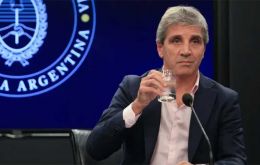
Argentina's Consumer Price Index (CPI) recorded a 1.5% increase last month, the National Institute of Statistics and Census (Indec) announced Thursday. It was the lowest monthly inflation rate since May 2020 and closer to 1.4% from November 2017.
-
Tuesday, April 8th 2025 - 09:17 UTC
Economists forecast Argentina's inflation to near 3%
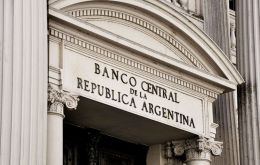
Argentina's Central Bank's (BCRA) issue of the Market Expectations Outlook (Relevamiento de Expectativas del Mercado - REM) released Monday with data collected between March 27 and 31 among 39 experts raised the inflation forecast for last month to 2.6% from the previous 2.2%, which would represent an acceleration from January’s 2.2% and February’s 2.4%.
-
Thursday, December 12th 2024 - 09:23 UTC
Argentina's Indec says inflation in November stood at 2.4%
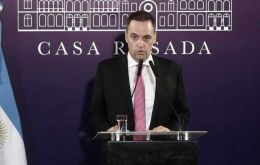
Argentina's Consumer Price Index (CPI) went up 2.4% in November for a 166% year-on-year, the National Institute of Statistics and Census (Indec) announced Wednesday in Buenos Aires. It was the lowest figure since July 2020 when it reached 1.9%. The Libertarian Government of President Javier Milei welcomed the news: “Inflation in Argentina RIP,” said Presidential Spokesman Manuel Adorni.
-
Saturday, March 23rd 2024 - 14:36 UTC
The Economist, “After 100 brutal days, Javier Milei has markets believing”

“We are genuinely very satisfied,” declared President Javier Milei of Argentina on local radio, after inflation in February fell by more than expected, to 13%. That, however, is the monthly figure. Over the past year it has amounted to 276%—the highest in the world. Inflation of just 8% annually has rattled politics in richer countries.
-
Monday, August 28th 2023 - 11:29 UTC
IMF report on Argentina calls for further expenditure control
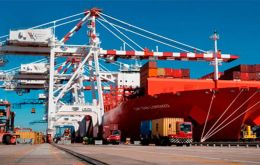
The latest International Monetary Fund (IMF) report on Argentina highlighted that the targets for reserve accumulation, fiscal deficit, and monetary financing of the deficit were missed “by wide margins.” As a result, imbalances have increased, so “further expenditure control will be needed throughout the election period.” The 1.9% GDP fiscal deficit target remained unchanged.
-
Saturday, August 19th 2023 - 09:21 UTC
Massa clinches deal to curb price hikes

Argentine Economy Minister and presidential hopeful Sergio Massa Friday announced an agreement with most leading supermarket chains and wholesalers for 90 days, during which prices will remain frozen in principle for some 52,300 mass consumption products and increases will be capped at 5% per month, it was reported in Buenos Aires.
-
Sunday, April 16th 2023 - 23:28 UTC
Argentine Cabinet Chief admits war against inflation is being lost
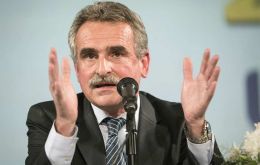
Argentina's Cabinet Chief Agustín Rossi admitted the administration of President Alberto Fernández was losing the battle with inflation. “We thought we were getting there, but we weren't,” Rossi was quoted as saying by local media. “Nobody can be happy, least of all us”, he added.
-
Wednesday, February 15th 2023 - 09:38 UTC
Inflation in Argentina reaches 6% in January
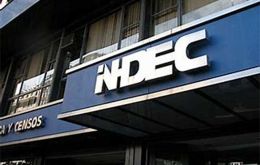
Inflation in Argentina reached 6% in January of 2023, according to a report from the National Institute of Statistics and Census (Indec) released Tuesday, which also showed the interannual consumer price index went up 98.8%. It was the highest monthly rate since 1991 when it reached 84%.
-
Friday, December 16th 2022 - 08:36 UTC
Argentina's inflation for November set at 4.9%

Argentina's Consumer Price Index (CPI) rose 4.9% in November for an accumulated 85.3% in the first eleven months of the year, according to a report released Thursday by the National Institute of Statistics and Census (Indec).
-
Tuesday, November 22nd 2022 - 08:37 UTC
Fourth Kirchner government climax, 12 month food inflation at 100%

The basic food basket, CBA, in Ushuaia, Tierra del Fuego province, Argentina soared 9,5% during October while the overall food basket, CBT, 9%, according to the latest figures from Indec, the country's stats office. This is 50% higher than the inflation rate for the month of October which stood at 6,3%.
